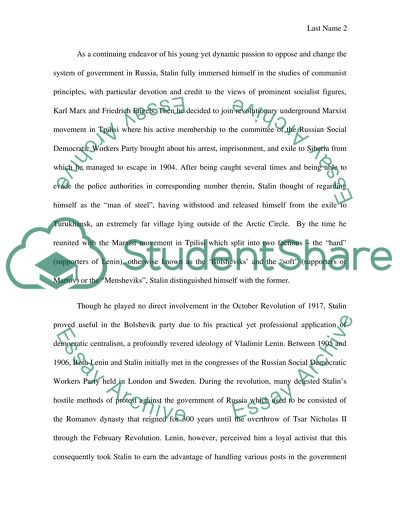Cite this document
(“Joseph Stalin Essay Example | Topics and Well Written Essays - 1250 words”, n.d.)
Retrieved from https://studentshare.org/history/1468365-joseph-stalin
Retrieved from https://studentshare.org/history/1468365-joseph-stalin
(Joseph Stalin Essay Example | Topics and Well Written Essays - 1250 Words)
https://studentshare.org/history/1468365-joseph-stalin.
https://studentshare.org/history/1468365-joseph-stalin.
“Joseph Stalin Essay Example | Topics and Well Written Essays - 1250 Words”, n.d. https://studentshare.org/history/1468365-joseph-stalin.


